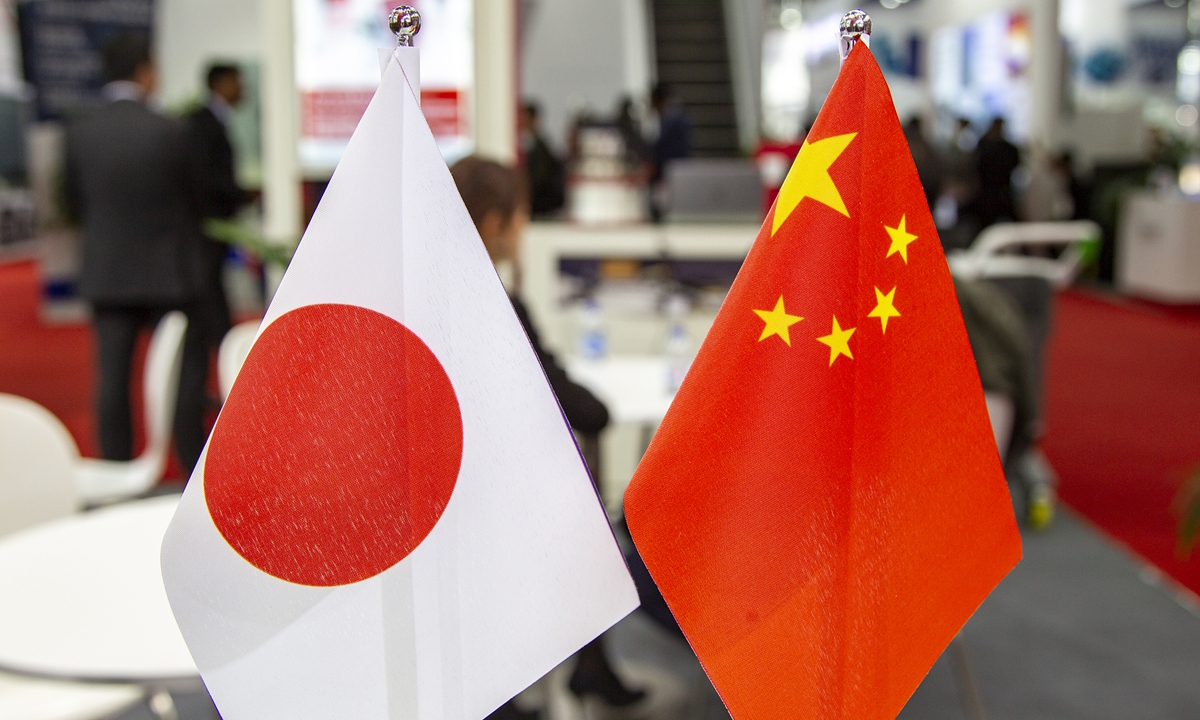‘Technology outflow’ worried by Japanese is actually exchange that benefits Japan

Photo: VCG
Japanese media reports reflecting on the reason why Japan's most treasured scientists have chosen to work in China have been under spotlight recently. I was interviewed by TBS Television on this issue, but did not follow up with the public response. I always hope that the Japanese government can invest more funds in scientific research. This partly explained why I accepted the interview by TBS.My interaction with Chinese universities started early. In 1996, I met a professor from Dalian University of Technology who introduced a brilliant Chinese student to study at Hokkaido University in 2000. After that, more excellent students came to me. These students went to teach in universities like Zhejiang University and Hong Kong Polytechnic University. This has further deepened my connections with Chinese universities.
I know how the environment for research in China was in the 1990s. As such, I have witnessed tremendous changes in China during the past two decades. Since 2011, I served as a visiting professor at several Chinese universities. Each year I worked in China for one or two months. About five years ago, a Chinese university invited me to be a full professor, yet I hesitated. But when I came back to China two years ago, I felt that things had changed.
In 2019, I retired from Hokkaido University and joined Shenzhen University as a full professor. The environment for research in Shenzhen University is very good with advanced equipment not available in Japanese universities and high-quality research groups around. As for worries in Japan about the outflow of cutting-edge technology to China, I have to say that at least in the civil engineering field, China has already got ahead of Japan both in terms of research equipment and research achievements in some topics.
Regarding the arguments about "technology outflow," I think Japanese have misunderstood China. Nowadays the intention of Chinese universities to recruit Japanese research scholars is not to let them take knowledge and technology from Japan. Chinese universities have recruited outstanding talents from all over the world, some of whom happen to be Japanese scientific researchers. They come to China for various reasons as a better/best option, just like many others choose to go to the US.
As a researcher, I devoted myself to this research (structural engineering and materials) because of my love of it and hope to contribute to the planet and human. Although I am Japanese, my starting point of research is not to create benefits for a particular country like Japan, nor is it for the sake of Japan as a country. If more project funding is available and/or research topics of interest are easier to be approved in a country such as China, it is quite natural for researchers to choose the country with better research conditions.
In fact, as President-elect of Japan Society of Civil Engineering, I have close associations with Japanese academia and have been conducting joint research with Japanese scholars so that the research achievements can bear fruit in Japan. Therefore, it is not so much that technology in Japan outflows to China, it is more that the research results achieved in China are brought back to Japan.
Many young scholars now have difficulty in finding jobs in Japan, which is a problem encountered by the country as a whole. There are policies of increasing doctorate degrees in Japan, but the number of research positions has not increased. In top universities like Hokkaido University where I worked, the positions of full-time teachers even decreased. For many young Japanese scholars, they are lucky to have the opportunity to be recruited by Chinese universities since the local Chinese researchers are very good while a large number of overseas talents also come to the country with a better environment for research. This undoubtedly makes the competition fiercer in China.
Not only researchers, in fact, but a growing number of Japanese people from all walks of life also come to China to seek development opportunities. China is becoming an active stage for more and more Japanese people, irrespective of age, experience, or occupation.
The Chinese people have a strong sense of competition and are willing to strive for their goals, which is a great part the Japanese lack. However, China puts too much emphasis on "quantity," believing that research achievements should "be judged by quantity." Some Chinese researchers just do their research to produce results and write papers, then they can apply for more scientific research funding. Japanese researchers, in contrast, are rather on the road of scientific research because of their love.
The number of papers in China is second to none in the world. Therefore, a research environment that pays more attention to quality should be created. The emphasis on quantity can bring the Olympic gold medals but may not bring top quality of research award like Nobel Prize. Based on my understanding of China, it is a country that makes its words into reality. I think if China wants to improve the current research environment with its national power, it will manage it.
This article was compiled by Global Times reporter Xing Xiaojing based on an interview with Tamon Ueda, a Distinguished Professor at Shenzhen University and President-elect of Japan Society of Civil Engineering. opinion@globaltimes.com.cn


